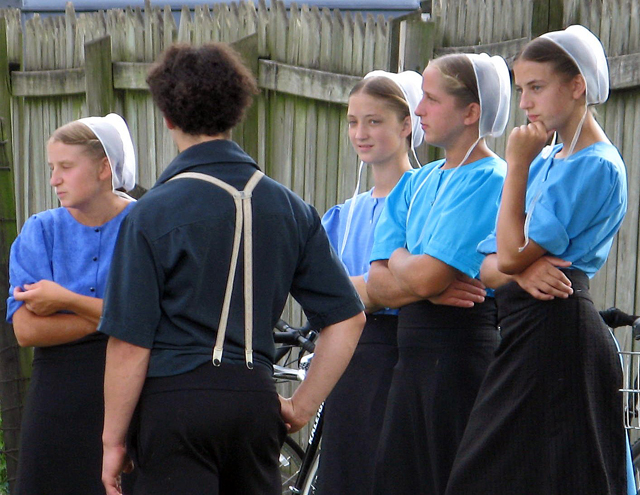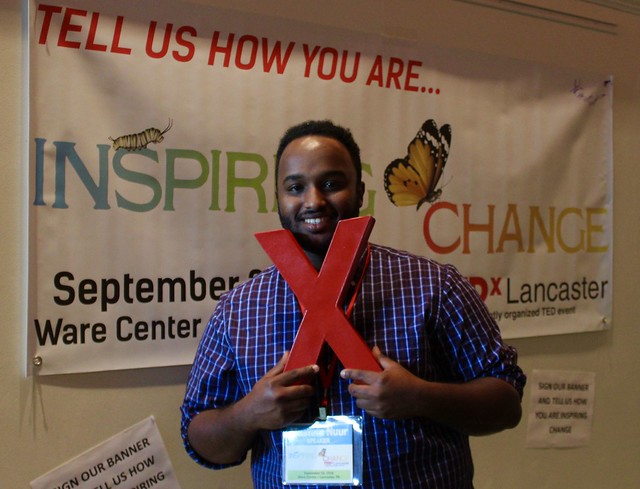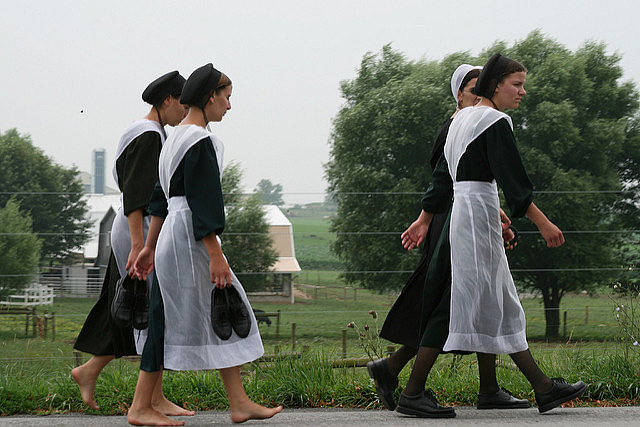In September 2019, Welcoming America, an NGO that encourages communities to embrace immigrants and refugees, designated Lancaster as a “certified welcoming city.” It became the first place in Pennsylvania to be so named. A news story in October 2017 indicated that for a long time Lancaster has welcomed refugees and others who are different, a popular attitude that city leaders attribute to the enduring presence of the Amish in the community and the surrounding Lancaster County.

A news report in The Philadelphia Inquirer last week fleshed out the details of the way groups are striving to build inter-cultural understanding among the different communities in the city, including the Amish. The article discussed a series of events held in Lancaster to foster cross-cultural dialogs between members of the refugee/immigrant communities in the small city and other residents such as the Amish.
The person-to-person conversations that are so important in fosterng inter-cultural understanding take place at meals hosted by two organizations: LoKal Experiences, a company that seeks to open the Amish community to outsiders and Bridge, a venture that is working to build contacts with the immigrants in the county. The founder of Bridge, a refugee from Somalia named Mustafa Nuur, emphasizes dinners in private homes to which guests are required to bring someone who has never met a refugee.

Since 2017, Mr. Nuur has organized over 2,300 events seeking to bridge the divides among different culture groups. His perception of the U.S. is that, despite the size and diversity of the country, individuals don’t socialize with people from other cultures. “You don’t know your neighbor or anybody that doesn’t look like you,” he told The Inquirer before one dinner event was set to begin. “I realized that to love your neighbor, you need to get to know them first,” the refugee added.
The event that the Inquirer attended was a lunch held a couple weekends ago at the farm of Ivan Beiler, an Amishman, and his wife Martha. Roughly 75 guests had paid $45 for a meal consisting of dishes such as chicken pot pies, eggplant stew, and stuffed grape leaves with whoopie pies for desert. The point of the meal was to foster conversations with others: across the table from Mrs. Beiler sat a woman wearing a hijab.
Mr. Beiler told the crowd of immigrants that the Amish experience their differences from most Americans the same as they do. “I can actually relate to their stories of moving here and trying to fit in, because we’re so different, too,” he said.

Phil Lapp, who owns LoKal, had Amish grandparents and an Amish father. He admits their values pervade his life. “The Amish have taught me the value of simplicity and minimalism. They are culturally rich and financially poor. They are, to me, the most kind, sweet people you can meet.”
After the meal was over, conversation and speeches continued. Ahmad Khilo, a 22-year-old refugee from Syria, spoke about his experience. He, his four siblings, and their parents survived in Aleppo when their home and family business were destroyed by bombs. They fled to Turkey and then to Lancaster. He said that they speak Kurdish, Arabic, and Turkish and they are now learning English, their fourth language.